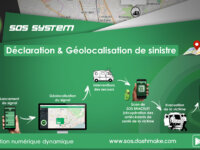Service shop, developed by the municipality of Larvik:
- is an online booking and calendar solution that allows service recipients to determine the time of receiving municipal services based on the recipients own calender and wishes
- is a secure solution that takes care of the privacy of the service recipients
- makes it easier for the employees to plan their days, the service order automatically generates employee workflow.
Innovation Tag: Public Service Delivery
The decease of a relative is a very tough and sensitive moment. What if a simpler, more comprehensive and especially a more humane service was available, helping the citizen to solve the main issues this situation involves? Using research and experimentation, the death and bereavement service was successfully tested and is becoming a reality as an integrated, one-stop solution.
A customer-friendly emergency service model from Finland where the public can find all the assistance they need at one point of service, instead of across several sites. In addition to somatic emergency services, psychiatry, substance abuse and violence prevention, crisis and social work, and child protection are available. The interprofessional model means collaboration towards a shared goal. The operational model, available anywhere in the world, improves emergency services.
The Model Hospital allows trusts across the NHS in England to benchmark their productivity and identify areas to improve across the range of services they delive. For the first time, it provides data on productivity, performance and quality in the same place,
highlighting opportunities to improve productivity and reduce variation. The Model Hospital leverages the power of benchmarking to provide concise, insightful, actionable strategic information to support trusts to improve care for patients.
More than 150,000 Togolese have downloaded the SOS Systems application, which helps precisely locate the place of occurrence of a disaster, can identify the health history of an unconscious victim by scanning the QR code of the bracelet, and shares daily health tips and tricks.
The Gauteng Department of Education (GDE) introduced the online application system in 2015. The Admissions Application Online System was introduced to ensure that the Department has all information relating to admissions in a central repository for planning and reporting purposes.
Amputee patients were staying in the hospital for extended periods of time due to poor healing and outcomes. The physio department used a machine traditionally used to treat back and joint pain, to increase wound healing time. The machine decreased the patients' length of stay by 20% and reduced edema. This decrease in edema assisted in less need for the shaping of the stump.
Accessing local council and central UK Government services using voice.
Randfontein High School began implementing digital tools in their classes in 2014. All 1.3000 pupils at the school have an iPad they use during lessons and assessments, and every single classroom has been digitized. Before going digital, the school started off by having all its staff trained.
Hearing the people's demands and points of view, through reliable sources, is a central challenge to governance in the 21st Century. With no additional costs, we use the government's call center, representative scientific samples of the population, and up-to-date computer-assisted telephone interviewing to uncover popular evaluations of the quality of public services in Brasilia, Brazil.


